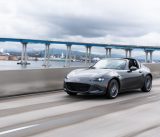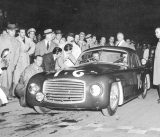Speed! That’s why we’re all here, right? We at DriveZing love fast cars, so we felt it’s only fitting we break down the world’s 25 fastest production cars. Of course, speed is measured in so many ways. In this list, we’ll tackle the fastest 0-to-60 MPH times. This 25-pack field constitutes a tight race to 60 MPH with many tying performances, so without further ado, let’s go!
#25: 2015 Chevrolet Corvette Z06
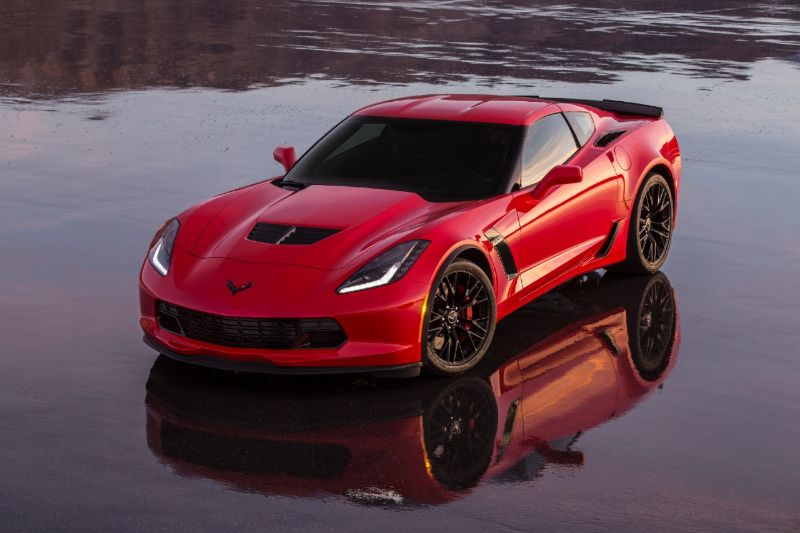
We’re happy to say that the first car to start off our list sets a blazing standard of 3 seconds flat in the null-to-60 category, doing so with some traditional American muscle that’s been cranked up to 11: It’s the 2015 Chevrolet Corvette Z06, GM’s flagship road shark. They’ve always said there is no replacement for displacement, and while we live in a world of supercars that are often missing two cylinders (or more), the Z06 happily eschews modern gas sipping in favor of some Friday night binging.
Slapping the Z06’s run-flat Michelin Pilot Sport Cup 2 tires against the pavement is a massive, supercharged LS9 V8 with 6.2 glorious liters’ worth of piston shoving out 650 horses and torques. Dubbed the LT4, GM’s latest rendition in the LS series does more than just make great power at peak. At idle alone, a whopping 457 torques are on tap with 90 percent of peak available between 2,500 and 5,400 RPM. Although ditching 0.8 liters of displacement, the new LT4 makes 40 percent more power than the previous generation’s 7.0L LS7.
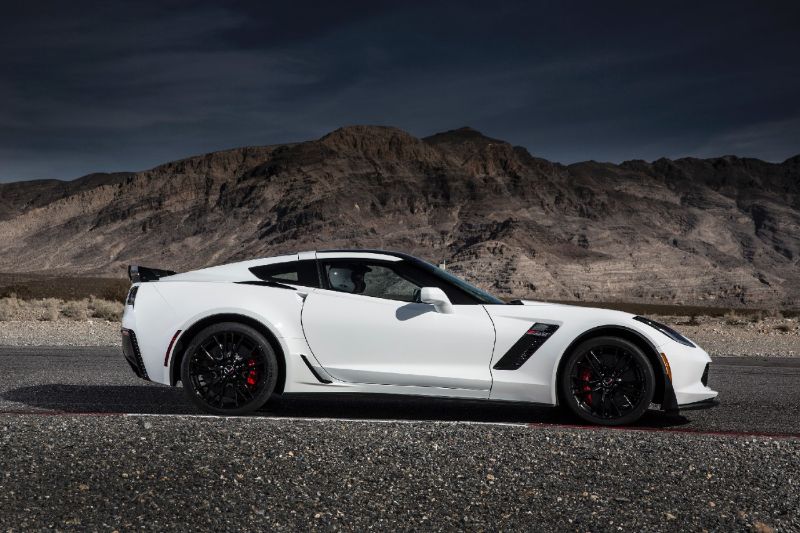
2015 Chevrolet Corvette Z06
That extra power in a smaller plant is all thanks to the LT4’s 1.7L blower and higher compression – 10.0:1 to be exact, higher than most production motors with forced induction slapped on. Forged aluminum pistons, titanium intake valves, and aluminum heads work together to beat faster and harder while dissipating heat more quickly.
To make full use of all this performance, GM finally decided to give the Z06 a proper automatic transmission (though old heads can stubbornly stick to their stick gearboxes if they please). GM says the new eight-speed auto trans allow the Z06 to get a respectable 22 MPGs on the highway while easily propelling it to 202 MPH. With Lamborghini performance available well below $100 grand, the burly Z06 sets the bar high for our remaining 24 cars.
#24: 2012 McLaren MP4-12C
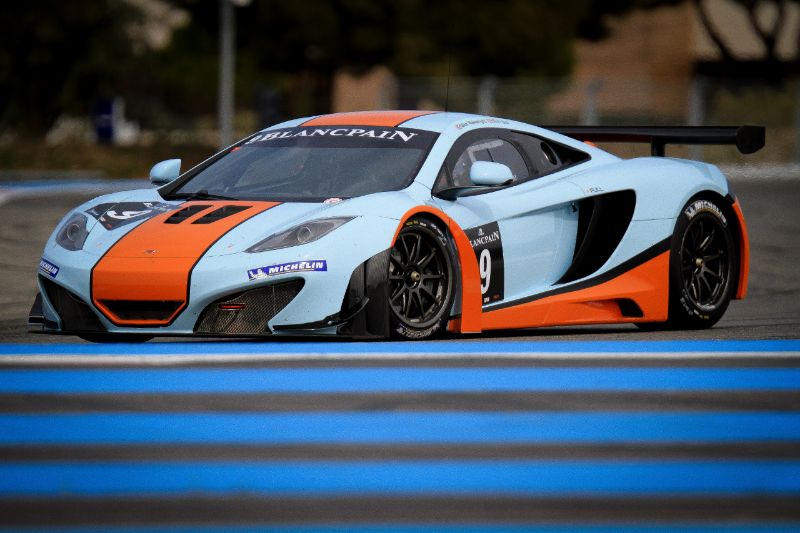
McLaren is to the Brits what Ferrari and Lamborghini are to the Italians: A staple of high-octane supercars. McLaren’s name has been in the “fastest-ever” game for many years, setting the record in the 90’s for fastest production car with the McLaren F1. Today, they retain bragging rights with their entrant on our list: The 2012 McLaren MP4-12C. Simply referred to as the 12C, this twin-turbo, 3.8L V8-powered roadster thumps out 592 horses and 442 torques via a twin-disc, seven-speed auto trans and Formula 1-inspired brake steering. It cuts corners with ease and more importantly, makes 0 to 60 in just 2.9 seconds.
Although the F1 holds title as one of the fastest naturally-aspirated production cars even today, the 12C is a successor in all other measures of performance. The F1 was a traditional roadster built for speed in a straight line, pushing out similar power figures but eschewing the modernity of advanced power modulation, like brake steering and active aero dampers. The 12C, however, was built for going fast in all directions.
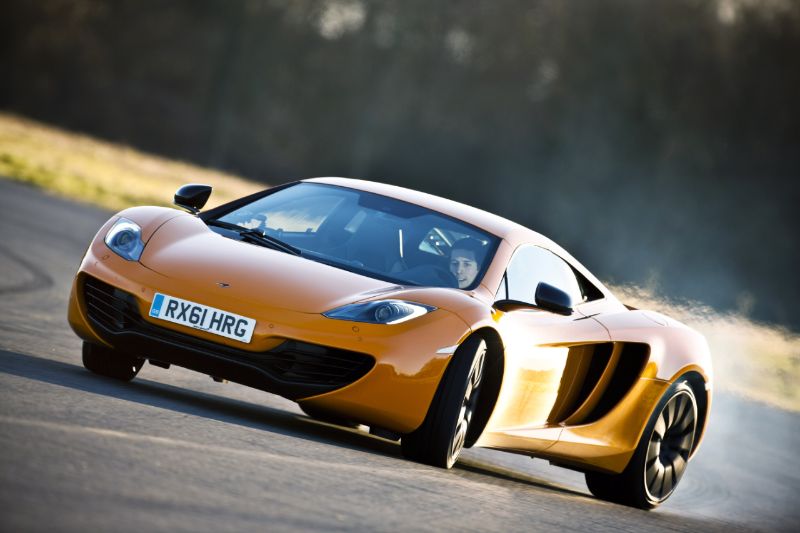
2012 MP4-12C
The 12C’s brake steering allows individual wheels to modulate power output in corners, while each wheel features completely independent suspension (there are no anti-sway bars) with active, computer-controlled and hydraulic dampers. The result is a car that can stiffen suspension enough to lap the Nürburgring better than a rock-hard 911 GT2, while providing a butter smooth driver’s experience on city streets.
For all its cornering prowess and overbuilt suspension, the 12C remains a featherweight at 3,200 pounds thanks to its carbon fiber monocoque body. Weight shed in every possible corner of the car, including such small considerations as building the turn stalk and center console from skeletonized carbon fiber frames. Building off the F1’s original chassis design, the 12C utilizes its power-to-weight ratio to peak out at 210 MPH, not far off from the F1’s record of 230 MPH.




